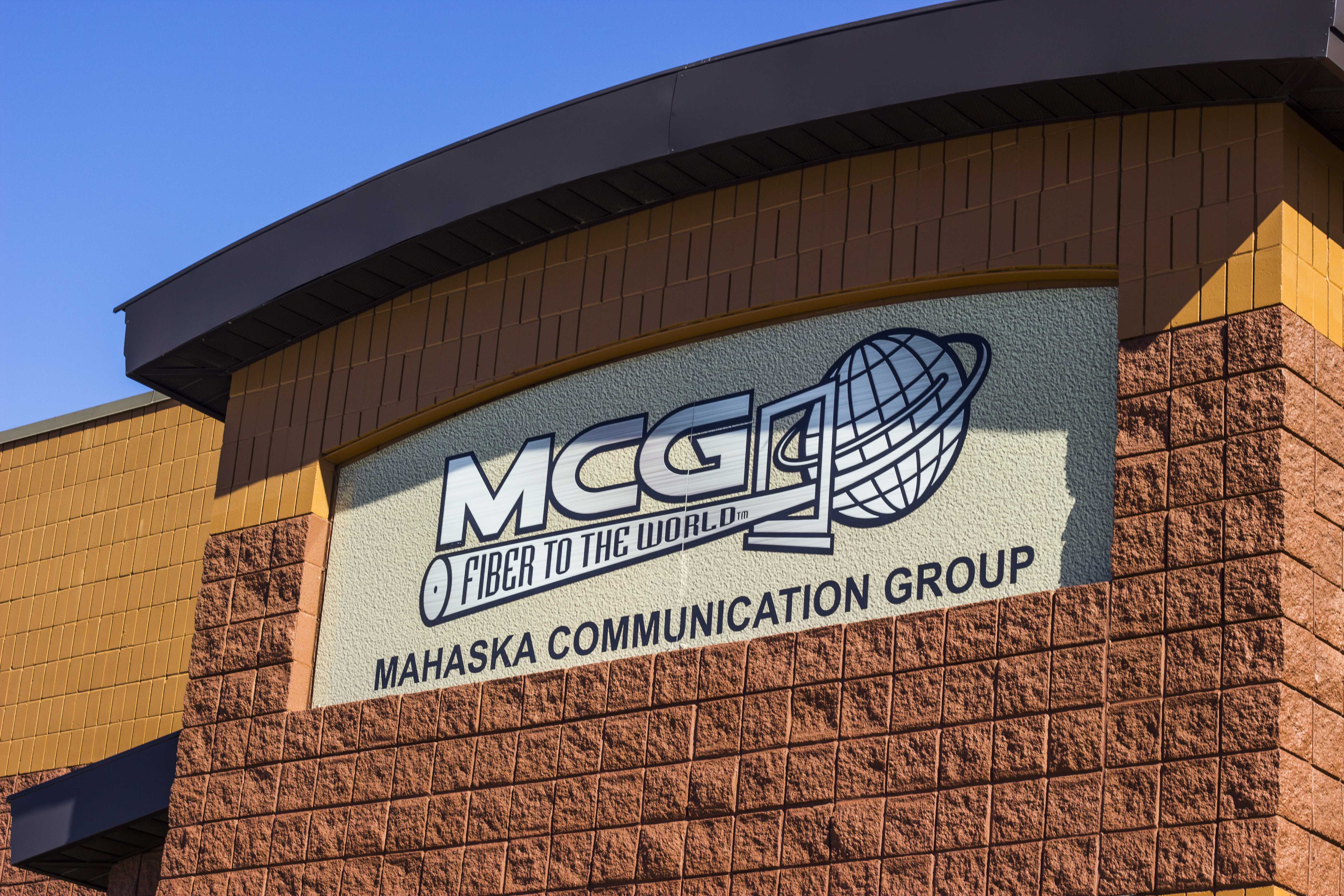
Thinner than a single strand of hair, each thread of fiber-optic glass technology is “future-proof,” claims Steve Burnett, assistant general manager at Mahaska Communications Group (MCG).
Built and redesigned to transmit data, fiber internet offers a stark improvement in efficiency and reliability as opposed to its predecessor copper wire – installed nationwide some 60 years ago, copper wire originally only carried voice, but over the years has been retrofitted to carry data, albeit at slower, more unpredictable speeds.
Burnett and his team at MCG announced on Jan. 14 that the company would begin installing fiber in Grinnell this year, with an estimated start to service for some customers beginning in Nov. 2020.
Regionally based in Oskaloosa, IA, MCG is currently finishing the installation of fiber in Sigourney, IA along with the communities of New Sharon, Montezuma and Lake Ponderosa. Within the next few months, the company will begin their data collection and planning phase in Grinnell before installation occurs in eight separate neighborhoods one by one over the course of a two-year plan.
This announcement is a long time coming for the Grinnell community. Conversations around internet concerns in Grinnell can be traced back to 2014 “Connect Every Iowan” surveys initiated by then-governor Terry Branstad, whose goal was to assess broadband connectivity across Iowa and better distribute technological resources across the state. Monique Shore, systems administrator and digital collections specialist at the Drake Community Library, collected data for the project.
Rachael Kinnick, director of the Grinnell Chamber of Commerce, identifies the Connect Every Iowan campaign as an important moment for bringing up the issue of internet in conversations between the chamber and city government. Still, “I don’t know if we all thought internet and reliability of internet was on the radar as much as it came to light in those meetings,” says Kinnick, with regard to 2016 focus groups amongst business owners wherein the issue of internet came up in almost every meeting.
Thus, inquiries into better internet options began.
All this time, the city of Grinnell and most of its businesses have operated using Mediacom or Windstream, two services which utilize the copper wiring to transmit their internet data.
Kinnick highlighted the tendency amongst business owners to subscribe to both Mediacom and Windstream services at the same time – evidence of the technologies’ unreliability. When one connection goes down, businesses will switch to the other service’s router. This often becomes a hefty overhead cost for small businesses who rely on the internet. Windstream announced last spring that they too would move to install fiber after MCG first began its own initiative.
Kinnick says that the Chamber has not heard much from Windstream on their plans, but the company previously announced that their fiber installations would only be strung from pre-existing above ground telephone poles. MCG is committed to reaching the entire Grinnell community through the more costly installation of underground fiber where it is needed.
Shore confirmed that the Drake Community Library itself subscribes to both services – and is eager for the switch to fiber. For many people, the library is the only place in town with barrier-free access to the internet, and Shore hopes to better accommodate these needs via fiber. Similarly, the library becomes a place where residents will be able to test the download speeds over fiber internet before they commit to installing it in their own homes.
Both Kinnick and Burnett explained that part of the difficulty in bringing fiber internet to Grinnell sooner is that major companies do not find incentive in investing in small communities like Grinnell – especially when major groups like Grinnell College operate on their own private fiber network. As a regionally-managed firm founded solely to service the fiber needs of Musco Lighting Corporation, MCG has expanded to cover all of Oskaloosa while developing a business model catering especially to small Iowa towns.
“We don’t operate from the principle that everything’s decided on profit. Quite frankly, the owner of Musco operates from the business principle of what can we do for the community,” stressed Burnett. “What I want folks in Grinnell to know is that we’re there to serve them.”
MCG will open an office in Grinnell to manage the system and customer needs, and nine new positions will be posted for hire in the community.
Additionally, the company looks forward to becoming involved with the public schools and the College by successfully developing programs which teach students how to film, edit and produce broadcasts of live events like sports games or concerts to air on a local access channel.
“… We want to help make [Grinnell] a better place to work, live and play,” Burnett said. “I think it’s a great place now, but they’ve been trying for years to get someone to come to town and provide an upgraded internet service for the community and we’re excited to be able to do that for them.”























































